Storytelling for Business: Be Who You Are
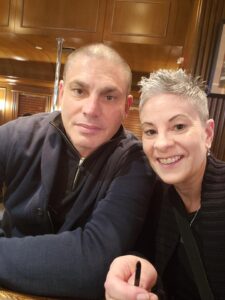
“All creatures great and small, all things wise and wonderful, the Lord God made them all.”
It’s not religious, but it is a reality of the universe, God makes no mistakes. The greatest thing you can do for the world is to present yourself as yourself. The secret of joy in life is to be exactly who you were meant to be, not to be any less than that, for if you are, we, the world, are cheated of your greatness.
Steven Savino is rising to the occasion of his own humanity. He is exactly who he is supposed to be, which means greatness is front and center because Steven knows he is here to serve and to give! Steven is an incredibly successful health insurance agent in the United States, but true success never comes without seeing things differently than most.
“The greatest accomplishment of my life has been moving forward and in a different direction than my family,” says Steven. “Being the only successful one to do something with their life, not turning out to be a thug. I love the family, but I’m going to say it exactly how it is. It’s changing the habits of my family to where I was growing up, of thinking like a shyster because my parents grew up in the fifties and the sixties amidst all the craziness. For a time I didn’t know any difference, but I eventually learned I had to grow out of that and change that mindset.”
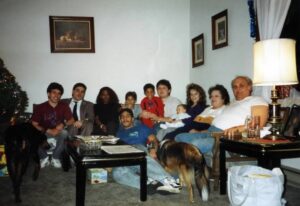
Steven says his environment was far from encouraging and it wasn’t easy to break free.
“I grew up in Brooklyn, New York,” says Steven. “I didn’t know what poor was because families didn’t tell you what poor was. Kids were supposed to be seen, not heard. But we always had food on the table and clothes on our back. Yet everything was hush, hush. There was never any encouragement of, “hey, you’re doing great.” “The only two times I can think of my parents not really bothering me, or busting my horns, as they say in Brooklyn, is when I had a doctor’s diagnosis that I was seriously ill and they were nice to me for about three weeks. When they found out it was the wrong diagnosis, that ended. And another time is when a tire blew up in my face as a kid. I was blind for about a week and it was like a perfect world, so much love and concern. But other than that, it was verbal abuse, and physical abuse to some extent. Never encouragement. They didn’t make you feel great about who you were.”
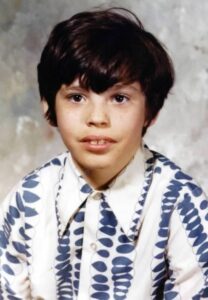
Steven says besides his parents and siblings, his surroundings in New York were more than, you might say, interesting. Steven didn’t realize it at the time, but his environment could have actually been… deadly.
“My first first job was shoe shining,” says Steven. “I lived in Brooklyn and I actually remember, people laugh at this, but I used to shine mobsters shoes and I know their names now and I look them up and I go, “Holy crap.” And it was funny because of those people like Toddo Marino, we were always protected in our neighborhood. We literally walked from 9th street all the way to 69th Street and back, from one side side of the street to the other, shining shoes.”
(Side note: Considered almost a mob boss in his own right, as a “caporegime”, Gaetano Toddo Marino ran a huge crew of gangsters from his South Brooklyn, Park Slope headquarters for nearly half a century.)
“There’s another funny part about it too. My mother was a hustler. Always hustled. I do not know her background. I met my real father at 20 and I tried to get the story behind it and I can’t get the true story behind it. So I think my mom just dated mobsters and she had connections. They used to call her Mary Boom Boom. The reason why, she used to sell fireworks out of the trunk of her car, just like in Goodfellas. And every time she did we’d end up with Pall Mall and Lucky Strike cigarette cartons in our house. People used to come by and my mom would give so-and-so a carton of cigarettes. So I know she was doing stuff. She was a hell of a hustler. That’s where I get my sales skills from,” laughs Steven.
Despite the sometimes rough and unsupportive family upbringing, as well as doing a tightrope walk on the wrong side of the tracks, Steven was still able to put one foot in front of the other and move forward toward what he wanted in life. No matter what the circumstance in life, progress is the great motivator.
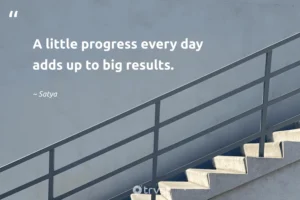
“I always loved cars and I dabbled with cars my entire life,” says Steven. “I wanted to go to automotive school, in high school, but you couldn’t get in. I ended up working for Chemical Bank and going to Pace University at night, but it ended up being too much on me because back in those days I was disco boy… having way too much fun. I knew pretty soon it was more important to get out of the ‘hood. I just knew I had to put a roof over my head and get out of my family home because if I didn’t get away from my lifestyle and living with my parents, it was going to all go downhill.”
From Chemical Bank, Steven bounced around a bit, working as an auto and bus mechanic and eventually an airline mechanic for Eastern Airlines.
“I flew all over the world with that job,” says Steven. “I had a blast, made some great money. And then I decided to get out of New York City at that time because I needed a change. And I moved to the Pocono Mountains, Pennsylvania and went up there to be a mechanic and a friend of mine walked into my gas station and I asked him, “What the hell do you do for a living?” He says, “I sell timeshares.” I said, “I can sell that.” “Though I had no idea what I was talking about. I lied my way into that career and then, my life changed. I worked for one of the biggest timeshares in the Poconos, the first one ever built. And then I went to the largest vacation ownerships of Wyndham Resorts in the world.”
But Steven still had a higher calling, as he always has, the desire to serve. He tried to turn his back on the timeshare world and started working on becoming a state trooper in Pennsylvania. He was willing to give up a six-figure income to go and work for much less, helping and serving others.
“I went to go be a State Trooper in the Poconos,” says Steven. And what happened was they said I was seven days too old. I passed everything. I was top 23 out of 12,000 candidates. So I sued the state and I changed the precedence of where the age was, height and weight and everything. So I helped people in the future become State Troopers but I never got the chance, but in the long run I’m glad I didn’t.”
While still in timeshare sales, Steven invested in Carlton Sheets, No Money Down, program and got into real estate, purchasing about 20 homes, before he found his way into insurance, working in door-to-door sales, then finally answering an ad on Craigslist to get into health insurance with one of the nation’s largest privately-owned health insurance companies.
In 2014, and in his fifties, Steven dove head on into health insurance and has never looked back. It’s never too late to start. First, working as a successful producer on the cusp of selling $5 million in personal individual policies, and now working to teach and to give back, as a respected and successful team leader.
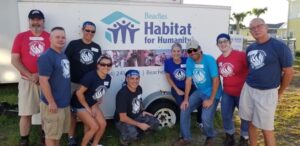
Steven also gives a lot of credit to Donna, his wife of 32-years, and says he wouldn’t be where he is now without her. She works in the insurance business with Steven and he says she has been part of his inspiration, despite their different upbringings.
“We work together, we do everything together. Donna’s from Jersey, I’m from New York, so that’s like fire and gasoline,” he laughs. “But it still works!”
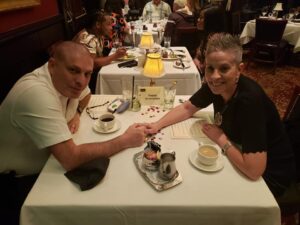

Steven says, in his mind, success comes down to one thing, personal responsibility. It’s something Steven says he has had to learn the hard way.
“One thing I always remember,” says Steven, “is what my stepdad one day told me sitting on a couch and I still got slapped in the mouth for giving the answer I wanted. He says to me, in fact he says to all the kids, “When I get old”, he was talking about himself “And I can’t take care of myself, what are you going to do for me?” And I looked at him, he was a big man, I mean big, his hands were bigger than my head. I said to myself, I’m going to get my whooped on this one, but I said it anyway, “Let me tell you something. In your life, if you didn’t set yourself up for success, that’s not my fault. And the first person I have to help is myself. The second person I’m going to help, if and when I’m married at the time, is my child or children and my wife, and if I have any extra, I’m going to help you. But I told him, “if you’re in that position, it’s on you, not on me.” I don’t believe in weakness at all for anything.”
“If there’s a will, there’s a way. We’re put on this earth, and everybody has a purpose. And I don’t believe sobbing over stuff. I just don’t. I guess as a young child, what I got from growing up like I did, is there’s only one way to do things. It’s work your ass off and work hard. That’s it. There’s no other way. I don’t believe in much, but I believe in that. The biggest thing I always say is, you have to control your mind, believe in yourself and what you’re doing. If you believe in it you’ll succeed no matter what you do. It’s like being on Broadway. If you’re an actor, you better believe in that show that you’re putting on. And if it’s a good thing, like what I do now with health insurance and you’re helping other people, then it becomes part of your DNA and it becomes true.”
Steven says he developed part of that philosophy after meeting and hanging out with an actor, Colin Farrell, who taught him a great lesson.
“When I was talking to Colin Farrell, we were sitting together and he says to me, “Hey Steve, teach me how to talk like someone from Brooklyn.” So I was teaching him and he picked up on it really fast. So I looked at him, I said, “Damn, you’re good.” He goes, “No sh*t, I’m an actor. I do this for a living.”

There was a hard truth in that statement from Colin Farrell, a life and business lesson that Steven took to heart to become successful, and he is now sharing that truth with others… master your craft.
“When it comes to insurance learn your product, become a master of your product, and believe in it. You need to believe in your product and understand it inside and out. You do not build a policy if it’s going to hurt any one of your clients or the company. Become an advisor. Care for people. Steer them in the right direction, where if they call you in the future, it’s because you did something good. I’ll tell every one of my clients, because I still sell, I probably won’t make a dime from you, but I will in the future because I’m going to ask you to refer me. Everybody needs help.”
Steven says there’s even a deeper lesson in all of this, especially when it comes to serving people in the right way.
“Always push to protect,” says Steven. “Don’t push for a policy, push to protect. When I first got into the industry, I did not take this seriously, for whatever reason. The resources were there. I have a hell of a work ethic. I’m stubborn because, I guess, I’m Italian and Irish, who the hell knows. But there was one client I didn’t push to protect. When I spoke to her on the phone, she had no insurance. I should have told her, “Listen, you need to have an insurance policy, you have nothing right now. God forbid something happens, I can’t get you insured and I don’t want that on my conscience.” I didn’t push her. Two weeks later she was diagnosed with a rare blood disease. From that point on I promised myself I would protect everybody the best I can. So when I say push to protect, you tell everybody what they need to hear, not want they want to hear.”
“Be direct, just like a doctor. A doctor should tell you what you need to hear, not what you want to hear. And if you give that piece of information to people as an expert in your field, whatever field it is in, if something happens, regardless if it’s good or bad, you will sleep well at night, knowing you did the right thing.”
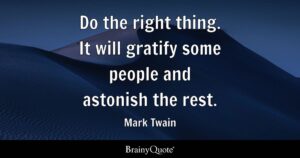
Doing the right thing never goes out of style, ever. And Steven says even though he has a rough-and-tough exterior, inside beats a kind and giving heart. In fact, he has a story about a heart-centered song and a singer that Steven says turned a corner for him in his life, and has become a cornerstone of his existence, to extend love and caring to others no matter what.
“I was working in vacation ownership at the time, but getting ready to transfer into insurance” says Steven. So I was driving to work in Destin, Florida, and I see this lady riding on a bike as I’m pulling into the resort and I look at her, I go, man, that’s an attractive woman. So while I was staring I almost ran her over.. and I know she saw me. She just happened to come in that day needing help and the managers sent her to me. In the moment, they didn’t know who she was. So I’m sitting with her and all of a sudden all my leaders and managers are coming over and asking if they can help me. Understand, they never used to offer to assist me at all. I was getting frustrated, So I get up, and say, “Amy, give me a second.”
“I go into the main office, I said, “What the hell is wrong with you guys? Why are you bothering me now?” And they said, “Do you know who that is?” “She’s famous, they said.” They ask me to introduce them, but I said, “No,” laughs Steven.
“So I went back over to Amy and she’s sitting really, really close to me. She says, “Oh, I’m so sorry. I’m sweating.” I said, “I remember you outside now. I almost ran you over.” Then I said, “Can I ask you a question?” She’s really close to me now and she says, what?” I said, “Are you famous?” She said, “You don’t know me?” I’m Amy Grant, I’m a singer.” I said, “Give me a song.” And she does. And I said, “Holy crap, because of you, that song took me out of my shyness. I met girls because of the song you used to sing. And I said “All these guys want to meet you. And I told them no.” She said, “Thank you so much.” So I took pictures with her, became friends with her, not longtime friends, but I helped her with her dad. Her dad had some issues with his timeshare. He was sick. And I gave her advice. Free advice.”

The song Steven refers to is, Baby, Baby, one of Amy Grant’s biggest hits. Part of the lyrics from that song read this way:
Baby, babyI’m taken with the notionTo love you with the sweetest of devotion.
Steven says he wants be remembered as someone who did just that, he cared deeply for others.
“I want to leave a legacy where I want people to know that I didn’t change my ways. I was always the crazy person I am, but I cared for everybody who walked in front of me. And regardless of what they did to me, good or bad, helped me or didn’t help me, I just want everybody to prosper in this world.”
The last lyric of Amy Grant’s song is, When I think about you it makes me smile.
Steven has learned that the best path in life to make others smile is to help them, and to do that you have to do the toughest thing we all must do in life, to be who you are.
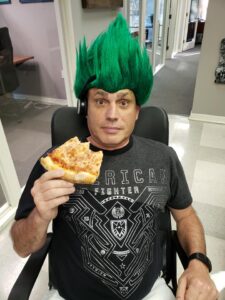
Until next time, thanks for taking the time.
Your Storyteller,
Mark Brodinsky
